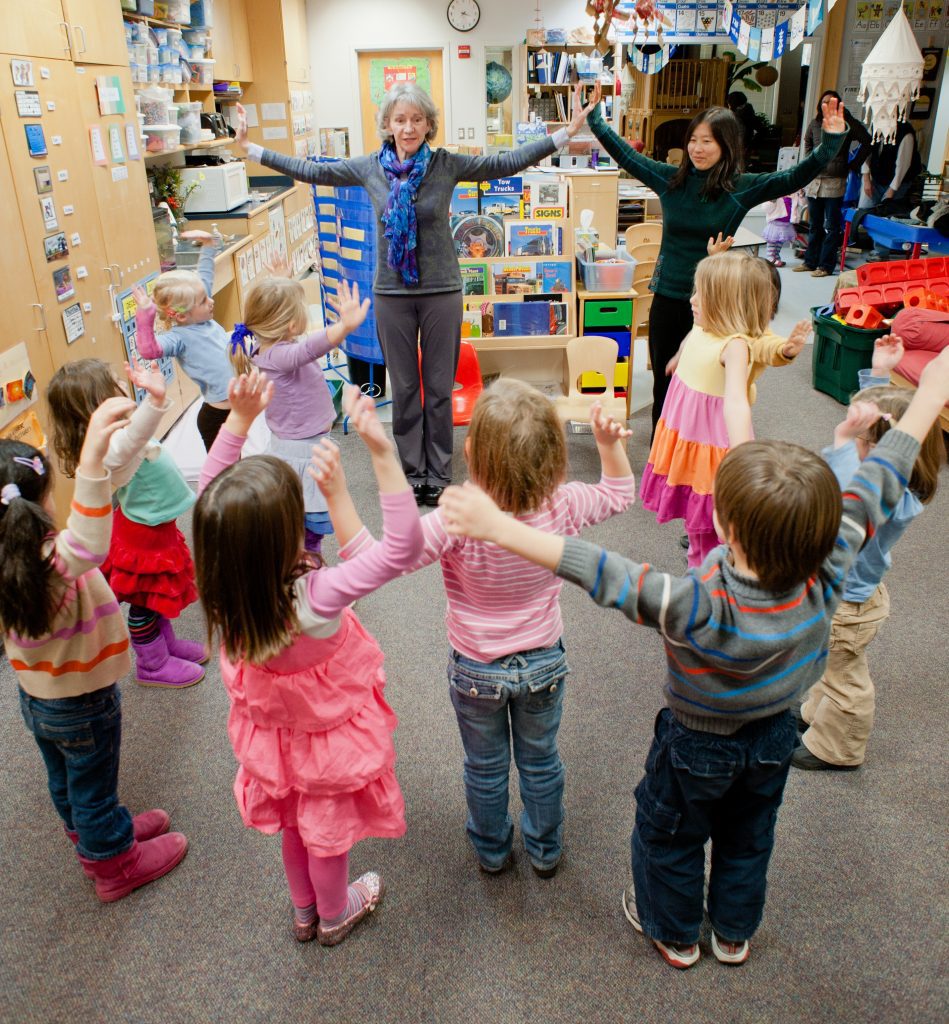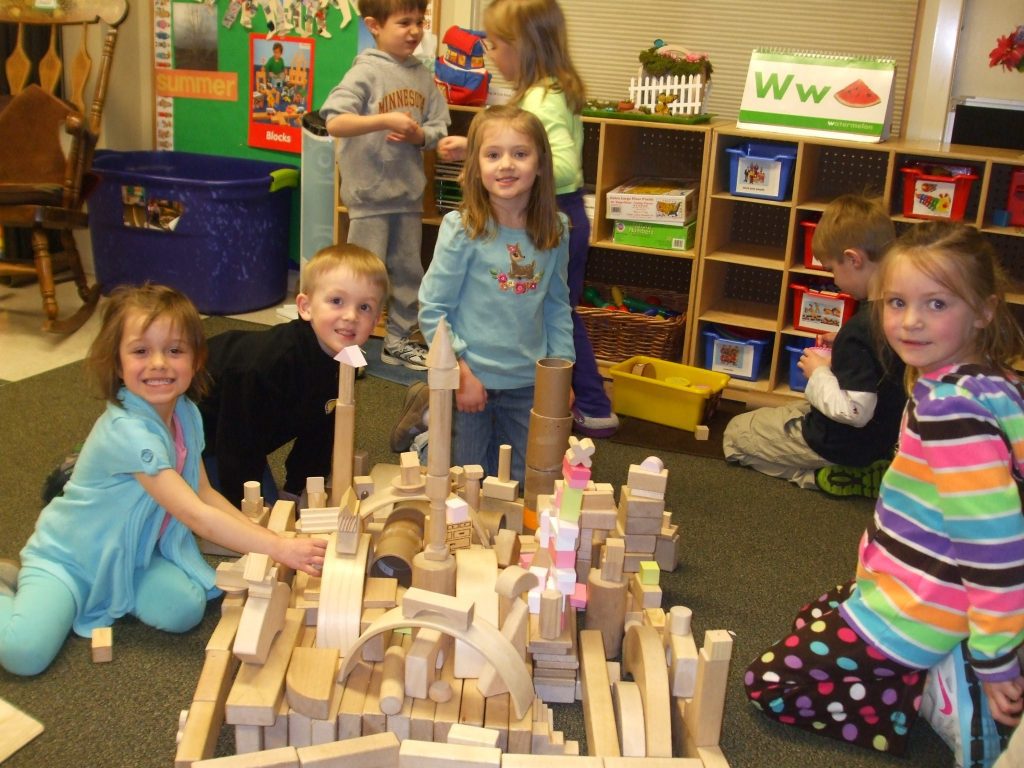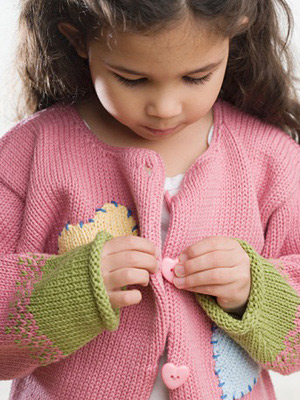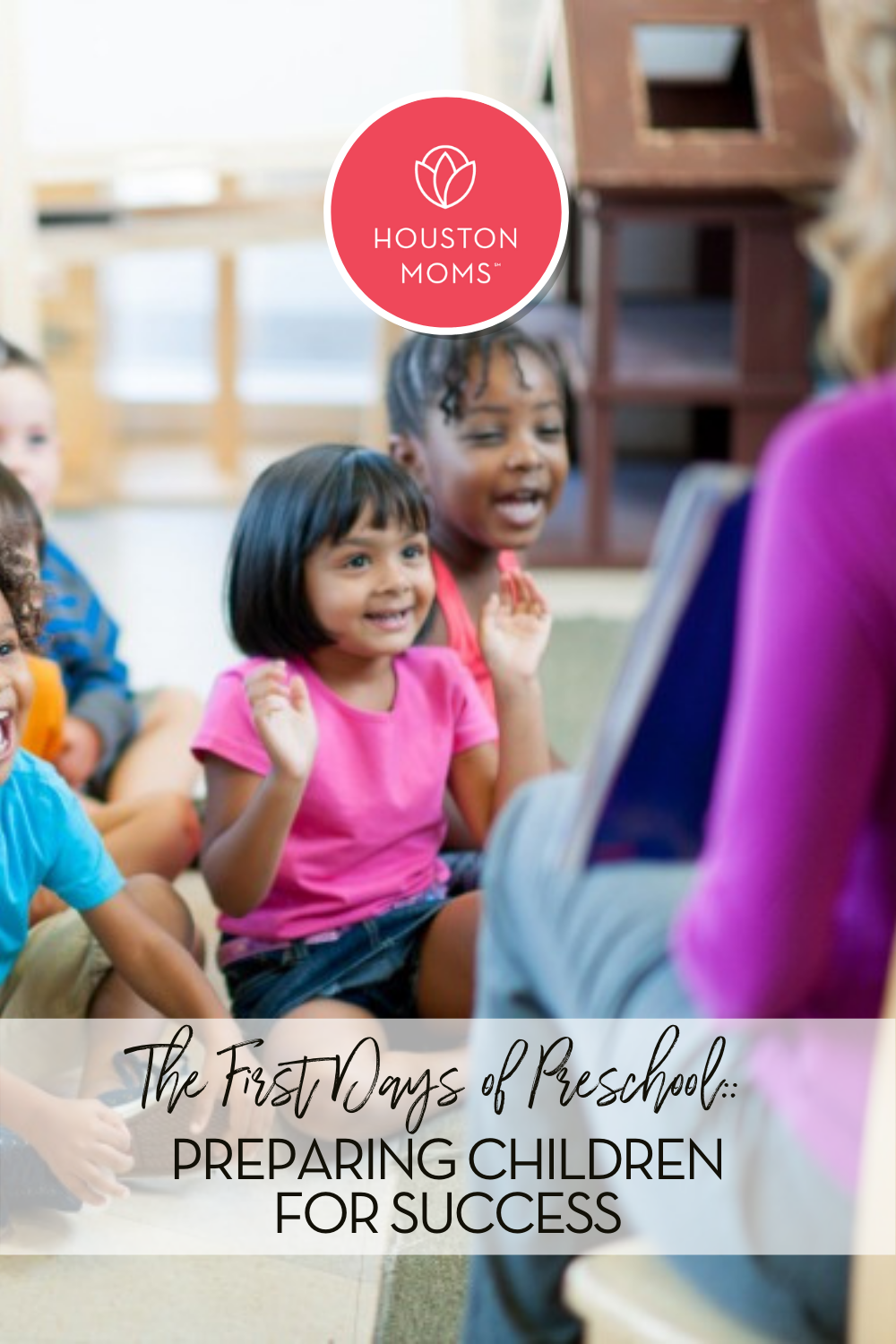A preschool director offers expert advice on the skills to work on with your little one this summer to ensure a smooth transition to preschool in the fall.

I stood toward the back of the room with tears streaming down my face trying hard to be inconspicuous, but I was a hot mess at 8 months pregnant with my third child. My oldest child sat with the other kindergarteners on a rug listening quietly as the teacher introduced herself. The emotion came on so unexpectantly that I was not at all prepared. I wiped my tears with my sleeve and hoped no one would notice the heavy gasps that broke through my restrained emotions every few minutes. The sweet affections being expressed by the teacher for her eager group of kindergarteners was more than I could handle. I realized this was the beginning of an important journey for my little girl, one that would affect the rest of her life.
On top of that, I would be trusting this sweet but unfamiliar woman to take on a responsibility I had held tightly the last 5 years. I hoped and prayed my child would be smart enough to learn quickly, confident enough to try new things, kind and considerate enough to make new friends, and obedient toward her teacher; in short, I hoped to see a reflection of the hard work and investment I had made up until this point. Excitement mixed with uncertainty rolled through my body as I stood watching and realizing I had suddenly become an observer rather than a participant in my child’s new world.
Three short years later I found myself sitting in the kindergarten teacher’s chair welcoming my own group of bright-eyed students to their first year of school. I fully understood the emotions displayed on each glossy eyed parent’s face. Entrusting the care of your child into the hands of someone else can be difficult—especially when a child is so young and vulnerable.
Making the First Preschool Days Easier
Now, as a preschool director, I witness children crossing the bridge from home life to classroom structure year after year. While most make the transition easily, others struggle as the expectations are more than they are equipped to handle. Educational professionals know that much of the difficulty a child has adapting to a school environment, especially kindergarten, can be attributed to developmental readiness. But often children come to school unprepared. Most children learn to adapt, eventually loving the structured chaos of a healthy preschool classroom; however, the toll it takes on teacher and mother is often overwhelming. In my experience, the children who transition the easiest have had practice in a few key areas of development.
Self-regulation
The best preschool settings allow for imaginative and free play as well as require children to learn to follow the teacher’s lead. This means losing some of the freedom found in a home environment. When faced with this challenge I have observed that many preschoolers struggle with self-regulation or the ability to control emotions and behaviors. Parents can nurture this area of development by establishing a few habits prior to the start of school. One of the easiest and best ways is to sit together at the table for meals. Encouraging your child to remain seated while eating strengthens self-regulation. Another way to do this is to have a routine quiet time when your child can look at books or play with toys in his bed. The practice of staying in one location for an extended period helps with self-regulation.
Regulating Emotions
Learning to regulate behavior is only half of the self-regulation equation. When teaching preschool, it is not unusual to have at least one child who cannot handle sharing, cries if he doesn’t get the sticker he wanted, uses aggression when angry, or just refuses to participate. Children need to be taught how to handle unexpected feelings of anger, disappointment, fear, hurt, and even pain. The best way to help your children process is to talk them through the emotions they’re experiencing. First acknowledge and validate their feelings, justified or not. Next, coach your child on how to manage the emotion much in the same way you would coach yourself through a disappointment or irrational fear. Try not to push your child away. Instead lean in when they are struggling. Helping your preschooler to understand emotions and how to deal with them sets them up for success in a classroom environment.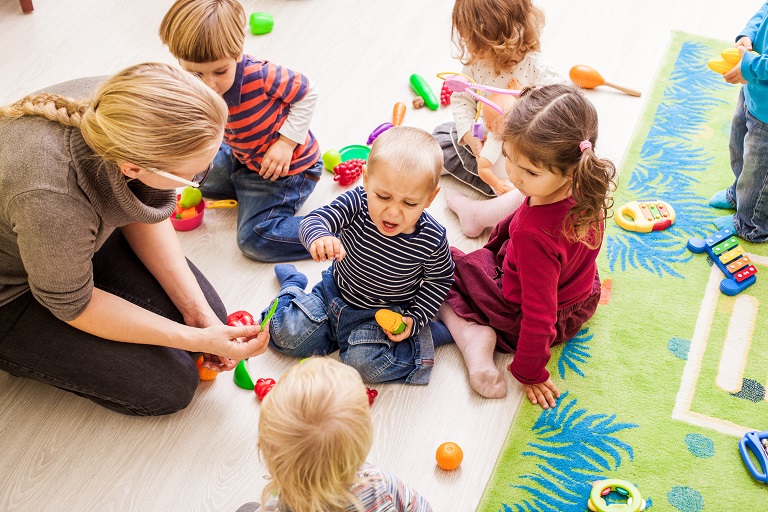
Respect for Authority
Occasionally a child would come to my class unfamiliar with the concept of authority. When I would ask him to do something, he’d take it as a suggestion rather than a command. Command may be a strong word, but when a preschool teacher is trying to manage a class full of rambunctious 3- and 4-year-olds, it is vital that the children respond to directions. To develop this skill, ask your child to do simple tasks for you. Young children cannot follow multiple directions at once. On a regular basis ask your child to do things like pick up a toy and hand it to you, close a door, put clothes in a hamper, flush a toilet, etc. Training a child to respond when you ask develops respect for your authority. Make sure they follow through with the easy things so that their inclination will be to obey the more difficult requests.
Independence
One of the best ways to help your child grow in confidence and strengthen self-esteem is to nurture independence. Littles can easily learn to potty on their own, put on shoes, pick out clothes, even buckle, snap and tie as they get closer to 5 and 6 years. All these steps toward independence foster the confidence they need to become self-motivated learners. A great place to start is with daily responsibilities like feeding the dog or cat, putting dishes in the sink, and picking up toys. Giving your child the opportunity to make choices is also a great way to foster independence. Lay out two shirts and ask which he prefers. Do you want to take a bath before or after your favorite show? Choices empower kids and help them to learn to make decisions in a preschool setting.
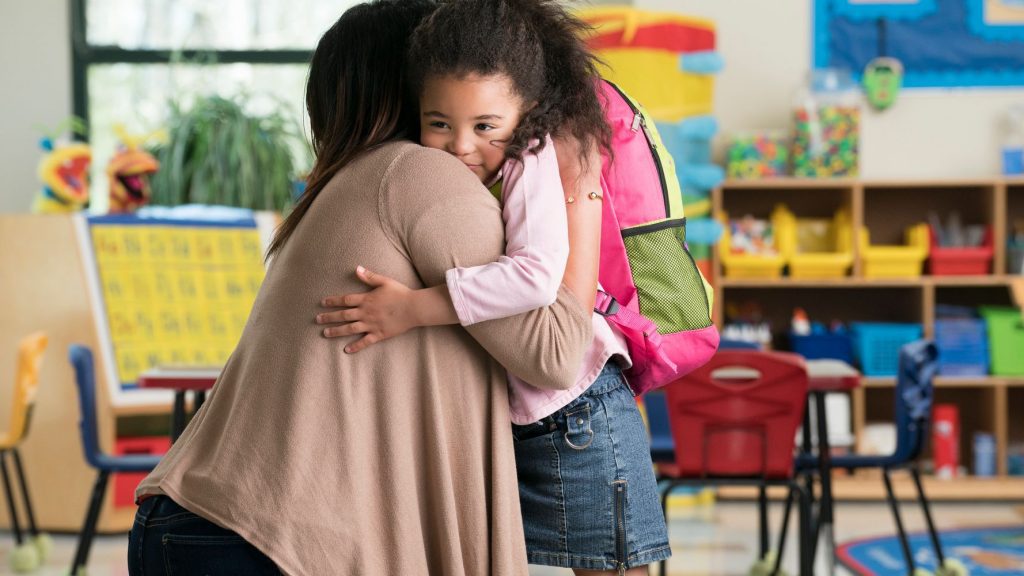 Holding On and Letting Go
Holding On and Letting Go
Both my daughter and I survived kindergarten and many more school years. Each year brought new challenges, but most were in some way related to learning to self-regulate behavior or emotions, respecting authority, and developing a sense of independence and responsibility. Preschool is only the beginning in a journey of development that lasts a lifetime. The tendency for every parent is to hold on to their child’s dependence, an instinct given to us to ensure the protection of the most vulnerable. But for most of us, letting go and trusting someone else to help care for a child is a necessity. At some point all parents realize that doing it alone is not manageable. More importantly, wanting what is best for our kids, we begin to understand that their success lies in our ability to relinquish control. This transition begins in preschool. So, hold on to the special moments with your children. Prepare them for success, but also embrace the anguish of letting go!








